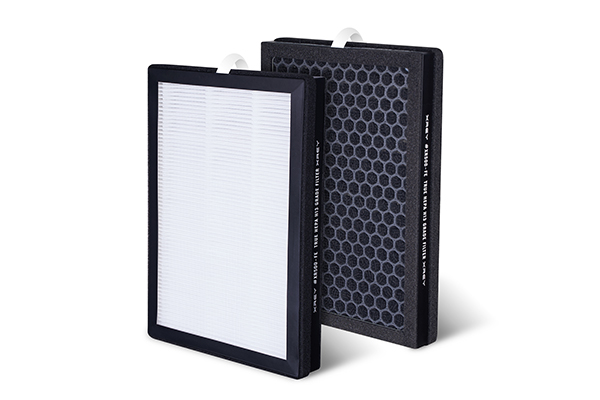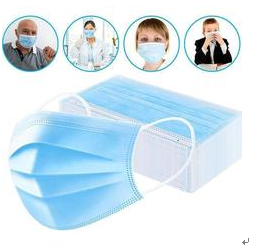
Coronavirus Survives on Surfaces for Weeks: Study
- 2022-09-01
- 2413
“It is possible to contract the virus through surfaces,” he said. “But it’s not happening very often.”
In addition, the study tested how long the virus lasts on surfaces but not how long the virus particles are actually infectious. Influenza A, for instance, has been found to survive on surfaces for 17 days, but a virus begins to degrade once it leaves a host’s body.
“How long [a virus] can survive and remain infectious depends on the type of virus, quantity, the surface, environmental conditions and how it’s deposited -- for example, touch versus droplets emitted by coughing,” Trevor Drew, director of the Australian Centre for Disease Preparedness, said in the statement.
Other scientists have said the study could cause “unnecessary fear” because the virus mostly spreads among humans through respiratory droplets from coughing and sneezing rather than dirty surfaces, Ron Eccles, former director of the Common Cold Centre at Cardiff University, told BBC.
“Fresh mucus is a hostile environment for viruses as it contains lots of white cells that produce enzymes to destroy viruses and can also contain antibodies and other chemicals to neutralize viruses,” he said. “In my opinion, infectious viruses will only persist for hours in mucus on surfaces rather than days.”
At 68 degrees Fahrenheit, the half-life -- or the time required to eliminate half of the initial amount of the virus -- on paper money was about 2.74 days. After 9 days, 90% of the virus was gone.
On cotton, the half-life was 1.68 days, and 90% of the virus was gone after about 5.5 days.
The study didn’t measure samples at less than 68 degrees. Based on the rate of virus decomposition at higher temperatures, though, the researchers suggested that the coronavirus could last longer in colder temperatures.
“This data could therefore provide a reasonable explanation for the outbreaks of COVID-19 surrounding meat processing and cold storage facilities,” they wrote.
Other studies have suggested that cold and damp environments, close working conditions, and a noisy work environment in meat processing plants could cause people to shout and spread respiratory droplets, the BBC reported.
Despite the limitations, the study may pose a reminder for frequent handwashing and regular disinfection of surfaces, especially during colder months.
“I wonder whether we’re going to see that COVID does spread more by touch in the winter,” Furness told CTV News. “I can't say that it does, but it’s entirely possible that it will.”
-
 2022-04-26Are air purifiers environmentally friendly ?
2022-04-26Are air purifiers environmentally friendly ? -
 2022-04-26The importance of wearing a mask correctly
2022-04-26The importance of wearing a mask correctly -
 2022-04-27Connexions Air H13 True HEPA Filters
2022-04-27Connexions Air H13 True HEPA Filters -
 2022-04-29What is the use of anion function of air purifier?
2022-04-29What is the use of anion function of air purifier? -
 2022-05-08Standardize the wearing of masks, children should not be missed!
2022-05-08Standardize the wearing of masks, children should not be missed! -
 2022-05-16Hazy days, air purifiers are useful?
2022-05-16Hazy days, air purifiers are useful? -
 2022-05-16Attention everyone! Don't buy fake FFP2 masks! How do we identify?
2022-05-16Attention everyone! Don't buy fake FFP2 masks! How do we identify? -
 2022-05-17Pay attention to secondary pollution when using air purifiers
2022-05-17Pay attention to secondary pollution when using air purifiers -
 2022-05-17TOP5 pollutants that the purifier can purify
2022-05-17TOP5 pollutants that the purifier can purify
-
 2020-06-02Why do Face Masks Matter With This Coronavirus
2020-06-02Why do Face Masks Matter With This Coronavirus -
 2020-06-02How to Wear Mask
2020-06-02How to Wear Mask -
 2020-06-02Three Principles of Choice of Masks
2020-06-02Three Principles of Choice of Masks -
 2020-06-022020 Situation of Mask Market
2020-06-022020 Situation of Mask Market -
 2020-06-17What other preventative measures can you take to protect yourself from airborne substances?
2020-06-17What other preventative measures can you take to protect yourself from airborne substances? -
 2020-06-08The Advantage of Disposable Face Masks
2020-06-08The Advantage of Disposable Face Masks -
 2020-06-093 Ply Disposable Face Mask & Soft & Comfortable Ear Loop
2020-06-093 Ply Disposable Face Mask & Soft & Comfortable Ear Loop -
 2020-06-17What are the regulations for surgical face masks?
2020-06-17What are the regulations for surgical face masks? -
 2020-06-09Do I need to wear a face mask if I am quarantined?
2020-06-09Do I need to wear a face mask if I am quarantined?
CONTACT US


Connexions Technology (Dongguan) Ltd.
We are always providing our customers with reliable products and considerate services.
If you would like to keep touch with us directly, please go to contact us
